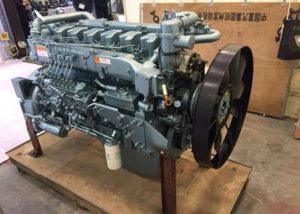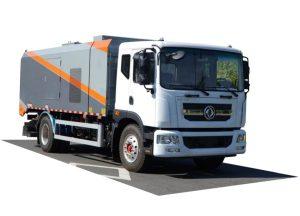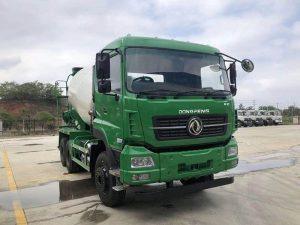Monday to Saturday - 8:00 -17:30
Who Invented the Refrigerated Truck? The History and Evolution of Cold Transport
The invention of the refrigerated truck has revolutionized the transport of perishable goods, making it possible to deliver fresh food and other temperature-sensitive products across vast distances. This article explores the comprehensive history behind the refrigerated truck, its inventor, technological evolution, impact on the transportation industry, and much more.
The Concept of Refrigerated Transport
Refrigerated transport began long before the invention of the refrigerated truck. Early civilizations understood the importance of keeping food fresh. Ice was harvested from lakes during winter and stored in insulated structures to preserve food. However, the true revolution began in the 19th century with the advent of mechanized refrigeration.
The Need for Refrigeration
As cities grew, so did the demand for food. Farmers needed a way to transport their perishable goods to urban markets without spoilage. The rise of the meatpacking industry further fueled the urgency for effective refrigerated transport solutions.
Initial Innovations
Before refrigerated trucks, railway cars equipped with ice were a popular method for transporting meat and dairy products. These innovations laid the groundwork for what would come next?
The Inventor of the Refrigerated Truck
The development of the refrigerated truck can be attributed to several key figures, but one man is often credited with pioneering its design: Frederick McKinley Jones.
Frederick McKinley Jones: A Brief Biography
Frederick McKinley Jones was born on May 17, 1893, in Cincinnati, Ohio. He was a self-taught inventor and entrepreneur, and his contributions to refrigeration technology would change the logistics of food transport forever.
His Invention and Patents
In the 1930s, Jones co-founded the Thermo King Corporation, a company specializing in climate control systems for vehicles. In 1935, he patented his design for a portable air-cooling unit, which allowed perishable goods to be transported in trucks. This invention facilitated the transportation of fruits, vegetables, dairy, and meats across the country.
Key Patents
| Patent Number | Year | Description |
|---|---|---|
| 1,547,515 | 1925 | Cooling apparatus for vehicles |
| 2,144,269 | 1939 | Refrigeration unit for vehicles |
The Evolution of Refrigerated Trucks
The First Refrigerated Trucks
Once refrigerated systems were integrated into trucks, the logistics of food distribution changed dramatically. Initially, trucks were equipped with simple refrigeration units that were powered by the vehicle’s engine or a separate gasoline-powered compressor.
Advancements in Technology
As technology improved, the efficiency and reliability of refrigerated trucks increased significantly. The introduction of electric-powered refrigeration units in the 1950s further transformed the industry, allowing trucks to carry goods over longer distances without needing to stop frequently.
The Impact on the Food Industry
The ability to transport perishable goods over long distances has had a tremendous impact on the food industry.
Supply Chain Transformation
Refrigerated trucks have facilitated the globalization of food supply chains. Fresh fruits and vegetables, which were once limited to local farmers’ markets, can now be shipped internationally.
Quality and Safety Standards
The use of refrigerated transport has improved food safety and quality standards across the board. Regulatory agencies now require temperature-controlled transport for many food products to prevent spoilage and contamination.
Examples of Refrigerated Truck Usage
Meat and Poultry Transport
The meat and poultry industry was one of the first to adopt refrigerated trailers. Companies like Tyson Foods and Cargill have large fleets of refrigerated trucks that ensure their products are kept at safe temperatures from farm to table.
Produce and Perishables
Fruits and vegetables need to be transported quickly and efficiently to prevent spoilage. Companies like FreshDirect utilize hundreds of refrigerated trucks to deliver fresh produce to consumers in urban areas.
Dairy Products
Dairy products, such as milk and cheese, require tight temperature controls. Brands like Horizon Organic utilize refrigerated trucks to maintain the cold chain from the farm through processing to the market.
Best Practices for Refrigerated Transport
Temperature Monitoring
Ensuring that the truck’s temperature remains constant is essential. Many refrigerated trucks now come equipped with temperature monitoring systems that alert drivers if there’s a problem.
Regular Maintenance
Regular servicing of refrigeration units is crucial to ensure efficiency and compliance with food safety standards.
Training for Drivers
Drivers should be adequately trained to understand the importance of maintaining the cold chain and proper loading techniques to maximize airflow within refrigerated compartments.
Challenges in Refrigerated Transport
Cost of Equipment
The initial investment in refrigerated trucks and equipment can be high. However, reduced spoilage often offsets these costs.
Environmental Concerns
As with all transport vehicles, refrigerated trucks contribute to carbon emissions. The industry is exploring alternative refrigeration methods and more efficient vehicles to mitigate environmental impact.
Regulatory Compliance
Adherence to food safety regulations can be complex and expensive. Transportation companies must ensure they comply with local and international regulations.
The Future of Refrigerated Transport
Innovations on the Horizon
Future innovations may include electric refrigerated trucks powered by green energy, advanced temperature sensors, and automation in loading and unloading processes.
Industry Trends
With the rise in e-commerce, refrigerated transport’s role is becoming even more crucial. Companies are investing in last-mile delivery solutions that include refrigerated trucks to meet the consumer demand for fresh products delivered straight to their doorsteps.
FAQs
Who invented the refrigerated truck?
Frederick McKinley Jones is credited with inventing the refrigerated truck and patented the first transport refrigeration system in the 1930s.
What was the first refrigerated truck used for?
The first refrigerated trucks were primarily used to transport meat, dairy, and produce, which required cold storage to maintain freshness and safety.
How did refrigerated trucks change the food industry?
Refrigerated trucks transformed the food industry by enabling the long-distance transportation of perishable products, leading to global food distribution and improved food safety standards.
What are the challenges associated with refrigerated transport?
Challenges include high equipment costs, environmental concerns related to carbon emissions, and the complexity of regulatory compliance.
What is the future of refrigerated transport?
The future of refrigerated transport may include electric vehicles, advanced temperature monitoring technologies, and more efficient last-mile delivery services to meet consumer demands.
Are refrigerated trucks energy-efficient?
Energy efficiency varies by truck model and refrigeration technology. Innovations are continuously being pursued to create more energy-efficient refrigerated transport solutions.









